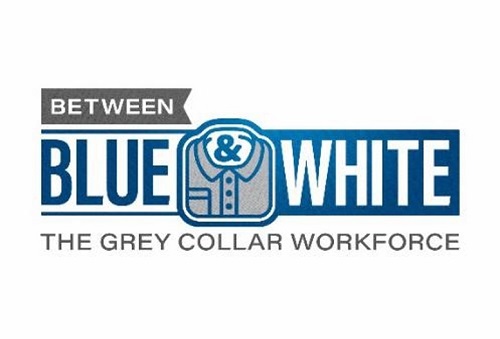February 27, 2020
February 27, 2020 - PRESSADVANTAGE -

Pensacola, Fla. – As automation creeps into facets of people's everyday lives from grocery delivery to one-day shipping for online shopping, workers are facing a new decade alongside technology designed to make businesses more efficient than ever before. While some jobs will become obsolete, this new trend is also creating career opportunities that possess characteristics of what were traditionally labeled blue or white collar jobs.
Express Employment Professionals, one of the top Pensacola recruitment agencies, released a white paper that introduces who is in the middle: the grey collar workforce.
In its polling and public opinion research, Express, working with The Harris Poll, uses the term “grey collar” to describe work that combines some of the manual labor aspects of blue-collar work but also has components of white collar work. Several of the included professions require skilled workers with specialized training beyond a high school diploma, such as engineers, paralegals, airline pilots, firefighters, non-physician healthcare professionals and more.
“After previously surveying the traditional blue and white collar populations, it became apparent that technology is changing businesses in such a way that more research was needed on this emerging population of workers,” said Bill Stoller, CEO of Express.
In fact, the top workplace trend for 2019, according to the Society for Human Resource Management, was “fostering the relationship between robotics and artificial intelligence.” From manufacturing to farming, administration to education, industries are incorporating advanced technologies into their processes.
"The human element will never go away," Dan Schawbel, partner and research director at New York City-based Future Workplace, said of automation in the workforce. “The big opportunity moving forward is for HR to partner with IT and even other departments… in order to collaborate and manage the human experience.”
Future Demand
More than 66% of surveyed grey collar workers hold a bachelor’s degree or higher, and 79% of those said going to college was worth every penny.
In a recent Wall Street Journal article, an analysis of federal data found that “new manufacturing jobs that require more advanced skills are driving up the education level of factory workers who in past generations could get by without higher education.”
This is why companies long known for blue-collar work will find themselves more reliant on grey collar workers. Forty percent of grey collar workers expect substantial job growth in their fields over the coming years, according to the Express survey.
The new white paper also explores more about grey collar workers, including who they are, where they work, what they do, satisfaction with lives and jobs, direction of their lives, ability of their job to provide a good living, future optimism and archaic labels.
Most white collar (83%) and grey collar workers (81%) view labels such as “grey collar,” “white collar” and “blue-collar” as a good way to describe the work they do, but also see these labels as old-fashioned and not necessarily applicable anymore (grey collar, 62%; white collar, 56%).
So, while examining the views of grey collar workers and working the term into our workplace lexicon can help form a clearer picture of the modern and future workforce, they do not paint the full picture.
“In the modern workforce, businesses and employees must be willing to change and adapt to new technology, regardless of collar classification,” said Bill Stoller, CEO of Express. “Instead of panicking about how artificial intelligence will eliminate positions, we need to embrace these emerging grey collar roles and the opportunities they create.”
At Express, a Pensacola employment agency, we’re in the business of people. From job seekers to client companies, Express helps people thrive and businesses grow. Express Employment Professionals of Pensacola is located at 7100 Plantation Rd STE 4, Pensacola, FL 32504 and serves the Pensacola, Milton, Gulf Breeze, Pace, Navarre, Warrington, Cantonment, Bagdad and Midway areas. Local businesses and applicants can stop by, call (850) 494-1776 or visit online at www.ExpressPensacola.com.
###
For more information about Express Employment Professionals - Pensacola, FL, contact the company here:
Express Employment Professionals - Pensacola, FL
Charles Bockwith
(850) 494-1776
expresspensacolajobs@gmail.com
7100 Plantation Rd Ste 4
Pensacola, FL, 32504